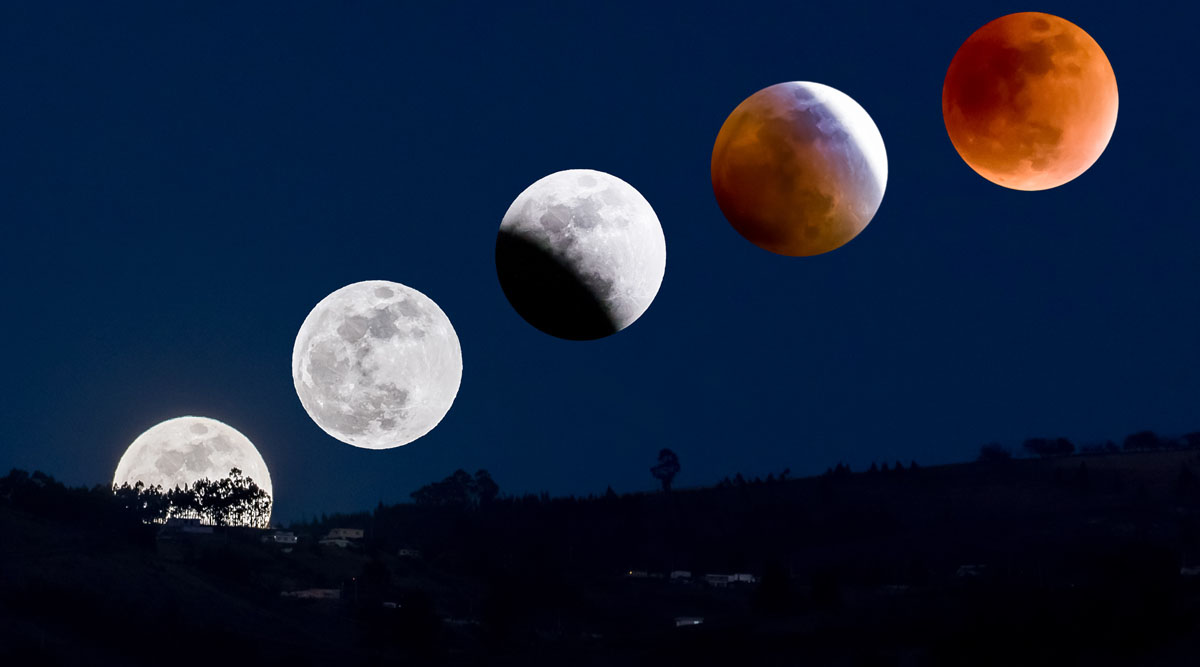
Image credit: Shutterstock
May 09, 2022
SIU plans family fun for May 15 total lunar eclipse
CARBONDALE, Ill. – Southern Illinois University Carbondale will have a free night of educational family fun on Sunday, May 15, at Saluki Stadium for a rare and awesome celestial event — a total lunar eclipse darkening the moon above North America.
Events include movies, hands-on science activities provided by the Southern Illinois Science Center and the university, and telescope observations provided by the SIU School of Physics and Applied Physics and the Astronomical Association of Southern Illinois. Other campus groups will also be on hand to provide information and services to participants.
Activities kick off at 7:30 p.m. and will run until midnight, said Bob Baer, specialist in the department and co-chair of the regional 2024 Eclipse Steering Committee. The lunar eclipse itself starts about 9:30 p.m., with totality occurring at 10:30 p.m.
The event is the first in a series spanning the next couple years, culminating in the April 8, 2024, total solar eclipse in Southern Illinois, the second such event in just seven years, as the solar system would have it.
“SIU has a longstanding commitment to community service and outreach that includes special events like this one,” Baer said. “Hosting events like this one for the community allows us to bring a high level of expertise to the observation that can enhance individuals’ understanding of our solar system and create learning experiences, especially for youth.”
A rare alignment
Total lunar eclipses are relatively rare, occurring about once every two and a half years. Caused by an alignment of the sun, Earth and moon, the events occur when the moon is full and illuminated by the sun. As the evening goes on, the Earth’s shadow is cast across the moon, causing it to go from a full to crescent before finally turning a shade of red-orange at totality.
Baer said physics faculty, staff and students, as well as amateur astronomers from the AASI, will set up and operate several telescopes on the field that will be open to public viewing. Some of the scopes will have cellphone adapters that will enable visitors to capture an image of the moon as it goes through the eclipse phases.
Organizers also plan hands-on astronomy and science activities. Documentary movies “A Glimpse into the Eclipse,” “In the Shadow,” “Mission to the Sun,” and “Expedition Mars” will play in order on the big screen during the night’s activities.
In case of bad weather…
Organizers have varying alternative plans based on the severity of any bad weather, Baer said.
“Clear to partly cloudy skies or even rain prior to the event is not going to be a problem,” he said. “In the event of a total cloud out or overcast skies, we will not see the moon, but all other event activities will continue as planned.”
Light rain or a passing rain will force organizers to cover telescopes and suspend activities at least temporarily.
“We will be keeping a close eye on the weather in the days leading up to the event. If storms are forecast, we will announce alternate plans or event cancelation on our website, eclipse.siu.edu.”
With an eye toward the 2024 eclipse
Baer said SIU is beginning the planning process for the total solar eclipse on April 8, 2024. Just as the previous total solar eclipse did in 2017, the event is expected to potentially bring thousands of sky-watchers to SIU and the region.
Baer said SIU faculty and staff are applying for major grants for both research and community outreach, while the steering committee also has begun meeting.
“We have a lot of experience from 2017 that applies to our 2024 preparations,” Baer said. “Our timeline for 2024 is based on events and activities leading up to the occasion itself, when we will see the second and final total solar eclipse over Southern Illinois, at least in our lifetimes.”
Designating the May 15 total lunar eclipse as the first such happening in the countdown to the 2024 total solar eclipse helps get the community in the right frame of mind.
“It helps give the campus community, the region and the Eclipse Steering Committee a chance to work together and explore options for 2024,” he said.
